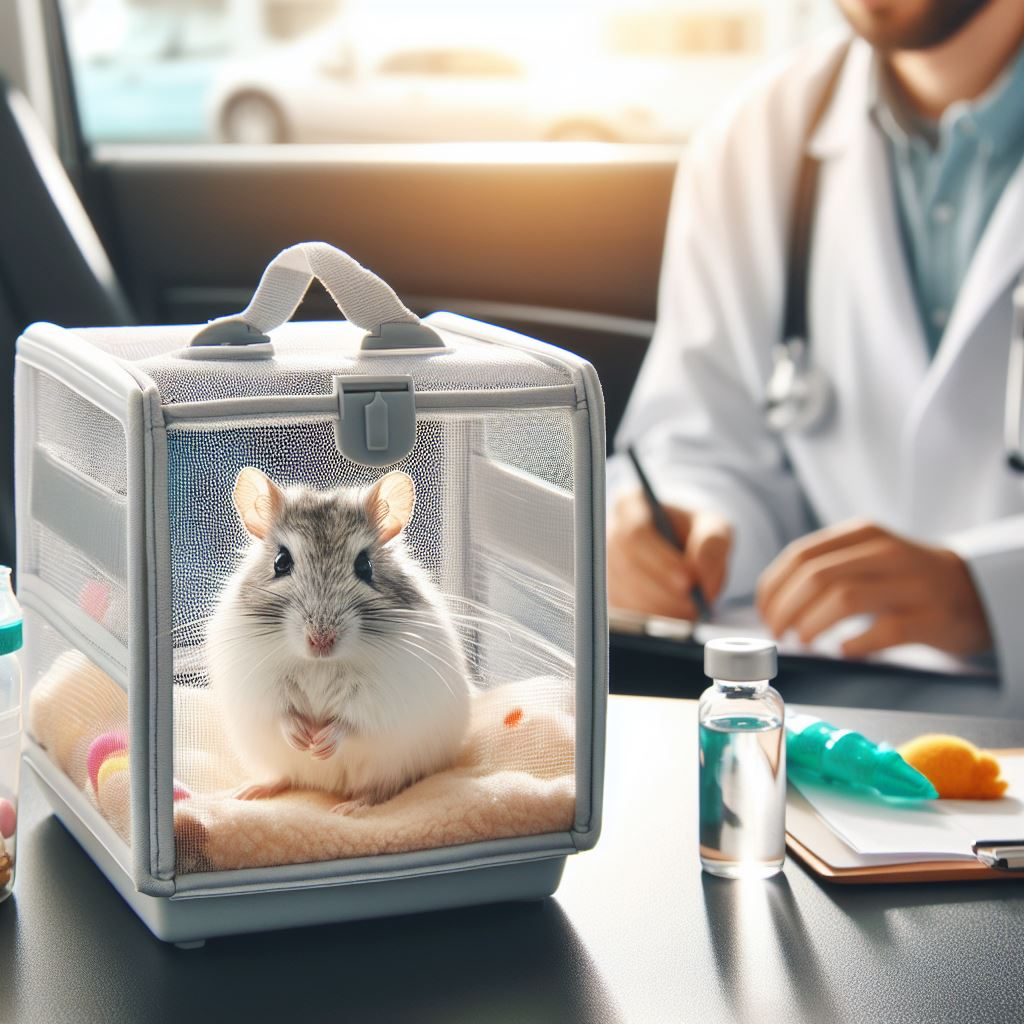How Long Do Gerbils Live?
Do you have a soft spot for gerbils, those adorable little creatures? Ever wondered about the lifespan of gerbils? Are you curious about ways to extend their lifespan, allowing them to be your companions for a longer duration? If you answered yes to any of these questions, you’ve come to the right place. In this article, I’ll share my years of experience raising gerbils, enlightening you on the lifespan of gerbils, and various factors influencing it. I’ll also provide practical advice on enhancing the quality of life for your gerbils, ensuring they’re healthier and happier. Let’s delve into the mysteries of gerbils together!
Natural Lifespan of Gerbils
Gerbils’ natural lifespan refers to the average lifespan of gerbils in the wild. This lifespan is generally shorter than that of domesticated gerbils due to the numerous survival challenges they face in the wild, such as food scarcity, inadequate water sources, threats from predators, and susceptibility to diseases.
According to various studies, the natural lifespan of gerbils typically ranges from 1 to 3 years, with variations among different species. For instance, the Mongolian gerbil has a natural lifespan of approximately 1.5 years, while the Fat-tailed gerbil can live up to around 3 years.
Environmental factors, including climate, seasons, and terrain, also influence gerbil lifespan in the wild. Gerbils may live longer in winter due to abundant food, while the lifespan might be shorter in plains than in mountainous areas due to increased natural predators.
Captive Lifespan of Gerbils
The captive lifespan of gerbils is generally longer than their natural lifespan, thanks to the improved living conditions, better dietary management, and timely healthcare they receive under human care. Studies suggest that the captive lifespan of gerbils ranges from 3 to 5 years, with variations among different breeds. For instance, the Mongolian gerbil has a captive lifespan of around 3 years, while the Fat-tailed gerbil can live up to 5 years. The lifespan is also influenced by the experience, knowledge, and attitude of the gerbil’s caretaker. Experienced and caring caretakers tend to contribute to longer lifespans, while inexperienced or neglectful caretakers may lead to shorter lifespans.

Environmental Care
Adequate Space:
Provide sufficient space to allow gerbils ample room for activities, preventing feelings of oppression, boredom, or anxiety.
Each gerbil typically requires a space of at least 30×30×30 centimeters, with larger spaces for multiple gerbils. Include toys such as wood shavings, tissue, wooden sticks, and plastic tubes to satisfy their natural instincts to chew, dig, and hide.
Temperature Regulation:
Maintain a comfortable temperature range between 18 to 24 degrees Celsius to prevent overheating or chilling.
Avoid sudden temperature changes and direct exposure to sunlight or air conditioning.
Optimal Humidity:
Keep humidity levels between 40% to 60% to prevent bacterial growth, fungal infections, and parasitic infestations.
Ensure stable humidity without extreme fluctuations or exposure to overly damp conditions.
Proper Lighting:
Mimic natural day-night cycles with an appropriate lighting duration of around 12 hours.
Avoid prolonged exposure to light or darkness to prevent disturbances to gerbils’ circadian rhythms.
Effective Ventilation:
Maintain good air circulation to prevent gerbils from inhaling harmful gases, dust, or fur.
Ensure moderate ventilation without strong winds or confining gerbils in enclosed spaces.
Regular Cleaning:
Keep the living environment clean by promptly removing waste, providing fresh bedding, and cleaning toys.
Prevent accumulation of debris, ensuring a hygienic space for gerbils.
Dietary Management

Appropriate Food Choices:
Offer a variety of natural foods such as seeds, tubers, and greens suitable for gerbils.
Emphasize diversity to ensure a well-rounded nutritional intake.
Foods to Avoid:
List foods that are unsuitable for gerbils, including high-sugar items, inappropriate vegetables, and meats.
Explain the potential harm of these foods to gerbil health.
Regular Veterinary Care:
Stress the importance of routine veterinary check-ups for gerbil longevity and health.
Provide preventive measures for disease and awareness of early symptoms.
Social Interaction
Companionship:
Highlight the social nature of gerbils, emphasizing the need for companionship with other gerbils.
Encourage interaction, grooming, and play to meet their social needs.
Human Bonding:
Emphasize the intelligence of gerbils and the positive relationships they can build with humans.
Encourage responsible handling, petting, and play to foster trust and ease of care.
Establishing Rules:
Stress the importance of having rules to maintain order and ensure the safety, health, and harmony of gerbils.
Provide appropriate rules without causing stress, rebellion, or suppression.
By following these guidelines for environmental care, dietary management, and social interaction, gerbil owners can contribute to the well-being and longevity of their adorable companions. Remember, being a responsible and caring gerbil owner plays a crucial role in ensuring a happy and healthy life for these charming rodents.



